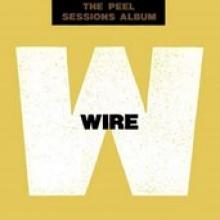The problem with referring to Wire - or anyone - as post punk results from the fact that bands like Cleveland's Pere Ubu and the Electric Eels trafficked in similar territories before punk had become codified enough to have an umbrella under which to grab shelter. These American groups, while obviously not the most major influence on Wire, did use similar approaches to song craft and instrumentation. But regardless of that, each made some good noise. And that's what counts in the end after all.
On the heels of the release of Pink Flag - Wire's first disc from late '77 - the band was able to wrangle a spot with John Peel, who was not only know to be sympathetic to out music, but a great promoter of it. And during '78 and '79, Wire entered Peels studio to cut nine tracks. Represented on The Peel Sessions, these tracks include work that was not just from that first proper full length, but the two that would soon follow in '78 and '79. And while 154, their third album moved more towards studio gadgetry and reliance upon keyboards, here the inclusion of "The Other Window" sounds as based in rock tropes as any other track.
That, though, doesn't mean that other offerings here wouldn't push the definition of punk and rock - which is after all what the band is known for. "Indirect Inquiries," also from 154, is so stripped of artifice that it's difficult to even pick out a melody. There is a thudding drum beat and some intertwining bass and guitar, but nothing to whistle. And while this would be the most extreme moment on the disc, there were moments when Wire just sounded like a good rock band.
"I am the Fly," which sounds as if should be a Cramps song - and almost could be, takes a garage based guitar squall and works it into a neatly British rock song. Even as this could be perceived as a more traditional take on the music, the fact that the rhythm is so robotically straight up and down would probably cause some listeners to recoil. That wasn't the point, but here, listeners are granted the opportunity to hear a band rework a number of soon to be classics. And if Wire's first two studio discs have gotten a bit too much attention in your rotation, The Peel Sessions will make a good addition.
